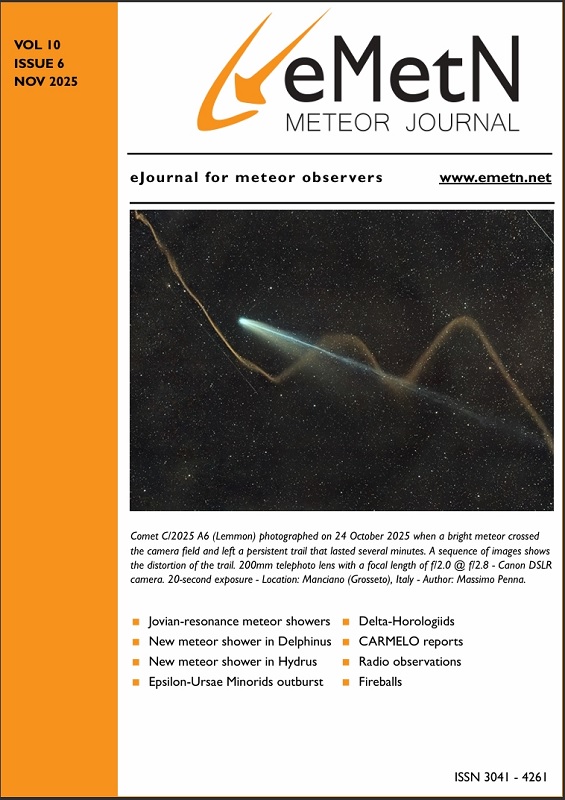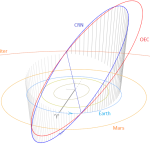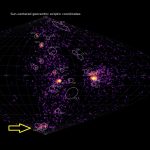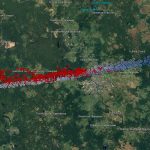By Yury Harachka, Alexander Mikulich, Konstantin Morozov and Alex Angelsky
Abstract: A possible new meteor shower has been discovered on September 24, 2024 (at λʘ = 181.9°) by Belarusian and Ukrainian video meteor networks. The radiant at α = 238.4° and δ = +77.4° is situated in Ursa Minor, with a geocentric velocity vg of 31.1 ± 1.1 km/s.
Observations
During the night of 24–25 September 2024, the Belarusian Meteor Network recorded activity from an unidentified radiant in the constellation of Ursa Minor near the star ζ UMi. Three paired meteors with very nearby radiants were captured. A day later, data from this night came from our Ukrainian colleague Alex Angelsky, who brought one more paired meteor. Figure 1 shows images of all 4 meteors, which had a medium angular velocity and absolute magnitudes in the range –0.51m to +0.6m. All meteors were registered within the interval in solar longitude of 181.7996° to 182.0316°.

Figure 1 – Four meteors from the possible new meteor shower recorded during the night of 24–25 September 2024.
Figure 2 shows the projection of meteors onto the Earth’s surface, two of these meteors were captured by four stations at once.
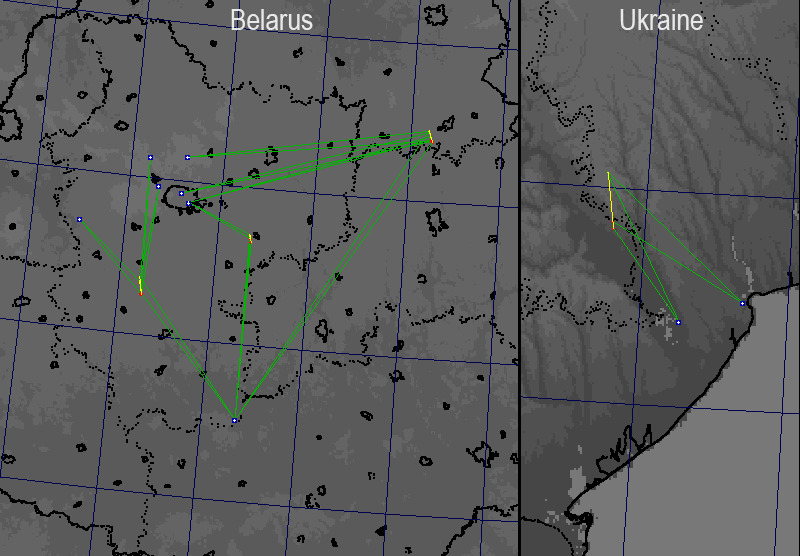
Figure 2 – Meteor trajectories from this unknown radiant in projected on the Earth’s surface.
Results
The data were processed in UFOOrbit (SonotaCo). Table 1 shows the calculated individual parameters for each meteor on September 24, 2024.
Table 1 – The orbital parameters of the four meteors recorded from the possible new meteor shower.
| Meteor | 2024-09-24 17:09:52 UT |
2024-09-24 18:12:48 UT |
2024-09-24 22:49:41 UT |
2024-09-24 22:50:50 UT |
| λʘ (°) | 181.7996 | 181.8424 | 182.0308 | 182.0316 |
| Abs Mag | 0.59 | -0.51 | -0.01 | -0.11 |
| αg (°) | 238.74 | 237.76 | 240.02 | 236.95 |
| δg (°) | 77.14 | 77.46 | 77.45 | 77.33 |
| Elng (°) | 118.45 | 117.81 | 116.72 | 118.6 |
| Elat (°) | 75.97 | 75.62 | 76.03 | 75.53 |
| Vg (km/s) | 29.65 | 32.37 | 30.99 | 31.31 |
| a (A.U.) | 2.26 | 3.26 | 2.66 | 2.72 |
| q (A.U.) | 0.9953 | 0.9954 | 0.9966 | 0.9947 |
| e | 0.56 | 0.695 | 0.626 | 0.635 |
| ω (°) | 168.145 | 168.987 | 169.576 | 168.234 |
| Ω (°) | 181.799 | 181.842 | 182.03 | 182.031 |
| i (°) | 51.04 | 54.38 | 52.72 | 53.18 |
The radiant parameters and orbital elements averaged for the four meteors are as follows:
λʘ = 181.9261° ± 0.1226°
αg = 238.37° ± 1.32°
δg = 77.35° ± 0.15°
Vg = 31.08 ± 1.12 km/s
a = 2.73 ± 0.41 AU
q = 0.996 ± 0.001 AU
e = 0.629 ± 0.055
ω = 168.735° ± 0.676°
Ω = 181.926° ± 0.123°
i = 52.83° ± 1.39°
Figure 3 shows the distribution of the radiants at the celestial sphere near the star ζ UMi.
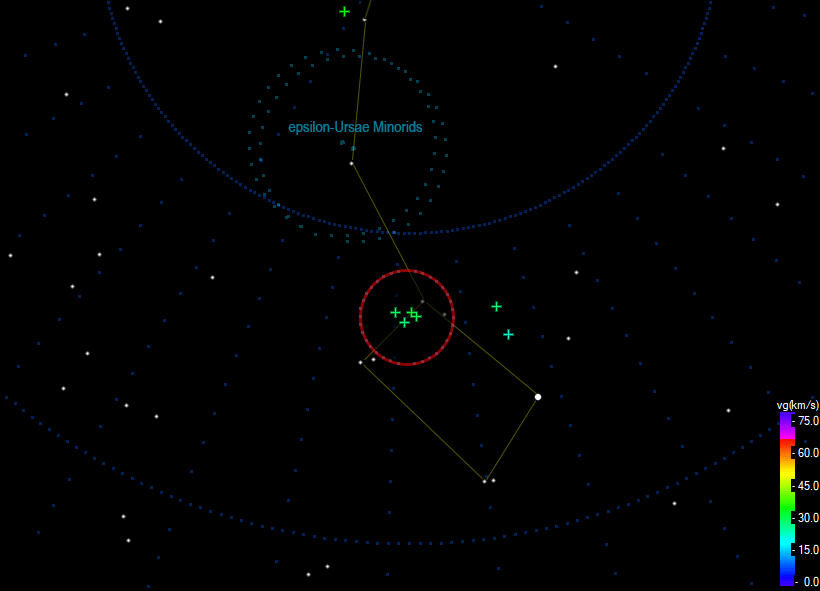
Figure 3 – Distribution of the radiants at the celestial sphere. The red circle indicates the radiant area of the possible new meteor shower.
It should be noted that 6 degrees north of the unidentified meteor shower is the radiant of the minor meteor shower epsilon-Ursae Minorids (EPU), which was expected to have its maximum activity on this night according to the IAU MDC data. It can be assumed that the new source may be dynamically related to the epsilon-Ursae Minorids.
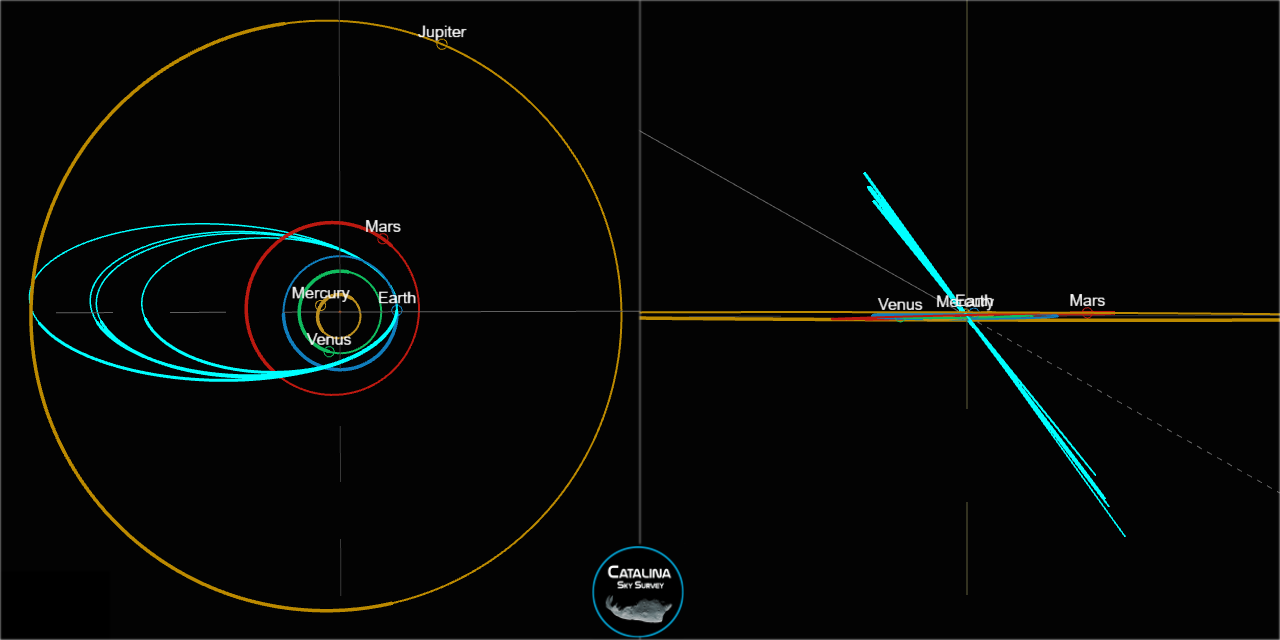
Figure 4 – The plotting of the orbits was made using the CSS Orbit View application.
Acknowledgment
The author would like to thank all operators and people involved in the Belarusian and Ukrainian meteor networks. We would especially like to thank our Ukrainian colleagues who continue to be involved in meteor astronomy during this difficult time for Ukraine. The author would also like to thank Paul Roggemans for his help in writing this report.
References
SonotaCo, www.sonotaco.com
IAU MDC, https://www.ta3.sk/IAUC22DB/MDC2022/Roje/roje_lista.php?corobic_roje=0&sort_roje=0
CSS Orbit View, https://catalina.lpl.arizona.edu/css-orbit-view


